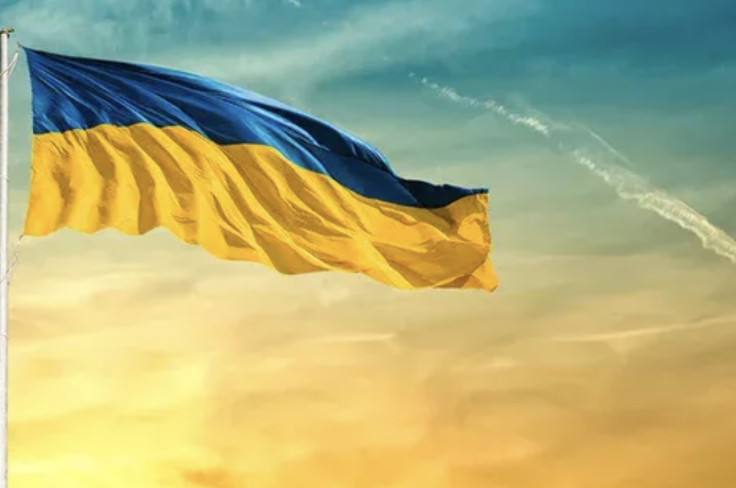Are Western Sanctions Enabling A System Of Endemic Corruption In Ukraine?

Corruption is the enemy of successful governance. It jeopardises the reign of democracy and hinders the proper rule of law. At present, 88% of Ukrainians consider corruption a significant threat to the country, a figure that continues to soar.
As the Russia-Ukraine war continues to drag on, many now worry that corruption has manifested in Ukraine's politically connected players. These players are using the conflict as a chance to enrich themselves by extorting and weakening commercial rivals and redistributing corporate assets in an attempt to form a new elite of oligarchic wealth under the guise of Western sanctions.
War and Corruption
War creates plenty of opportunities for corruption. As government resources and funding are mobilised as part of Ukraine's war effort, anti-corruption measures and the maintenance of the rule of law have fallen secondary in the list of state priorities. In other words, less time and attention are allocated to enforcing accountability and oversight. Concerns have even sparked among Western allies regarding the distribution of aid sent to Ukraine, and they are calling for answers regarding how funds are being spent and used among local authorities.
According to reports, since the beginning of the conflict, 84% of anti-corruption experts and entities have abandoned their activities, leaving a vacuum of unfilled posts in the bid to fight against Ukrainian graft. Another 47%, including journalists and prominent activists, argue they feel endangered if they continue to pursue corruption investigations or speak out against the government.
Just For Show?
As corruption scandals linking top Ukraine officials to money laundering and embezzlement cases surfaced earlier this year, President Volodymyr Zelensky's government responded by issuing firings and open investigations into the alleged crimes and vowing to take a zero-tolerance approach to corruption.
A bigger question, however, remains: How widespread are these graft cases? Do the ousters and resignations represent a real and prolonged effort to crack down on corruption, or are they only part of a public show to reassure its Western partners, from whom aid is dwindling, and the Ukrainian public?
There seems to be a growing disparity between the criteria of Western sanctions against Russia and that of Ukraine's sanctions regime. While Western sanctions tend to be based on transparent criteria, their Ukrainian counterparts seem quite opaque, incoherent, and sometimes lack legitimacy.
Businesses Under Threat
Several notable Ukrainian companies claim that sanctions imposed against them and their owners are baseless and are now demanding judicial review and proper investigation. Many others have been victims of unjustified corporate raids. Such has been the case of Smart Holding, one of Ukraine's most prominent investment conglomerates, which has faced dubious criminal charges under highly vague national security grounds and was approached with a fire-sale buyout offer hours before a series of police raids were carried out across the firm's head office and subsidiaries.
According to Smart Holding's CEO, Julia Kiryanova, 'Nobody's safe.' The raids also forced the company to lay off 3,000 staff members, proving that corporate raids impact the livelihoods of Ukrainian citizens.
Sense Bank, Ukraine's top commercial lender, was allegedly unlawfully appropriated by the Ukrainian political elite under the guise of sanctions. From March 2022 onward, a series of arbitrary laws relevant to ABH Holdings (ABHH), Sense Bank's former owner, were passed. These laws were designed to specifically target and eventually expropriate the bank for a third-party sellout to seek profit. The legal framework placed ABHH and Sense Bank in a stalemate, where Sense Bank could neither dispose of or transfer shares nor comply with the new laws.
The expropriation was unlawful and harmed Sense Bank's substantial European minority shareholders, such as the international banking group UniCredit and the Mark Foundation for Cancer Research. Since then, ABH Holdings S.A, the former owner of Sense Bank, has initiated arbitration proceedings against Ukraine to seek compensation of US$1 billion for the bank's unlawful expropriation.
The seizure of assets under the guise of sanctions is reminiscent of the privatisation of state assets in Russia in the 90s. It illustrates a form of systemic corruption by which limited interest groups take control of institutions and processes directly linked to the execution of public policy. Such practices undermine the security of foreign investments and Ukraine's sovereignty.
If the government wrongly sanctions domestic or foreign companies, it must provide for a clear framework and legitimate appeal process, observing the rule of law. The absence of any due process ultimately undermines Ukraine's justification of its defense against Russia's illegal invasion.
© Copyright IBTimes 2025. All rights reserved.





















